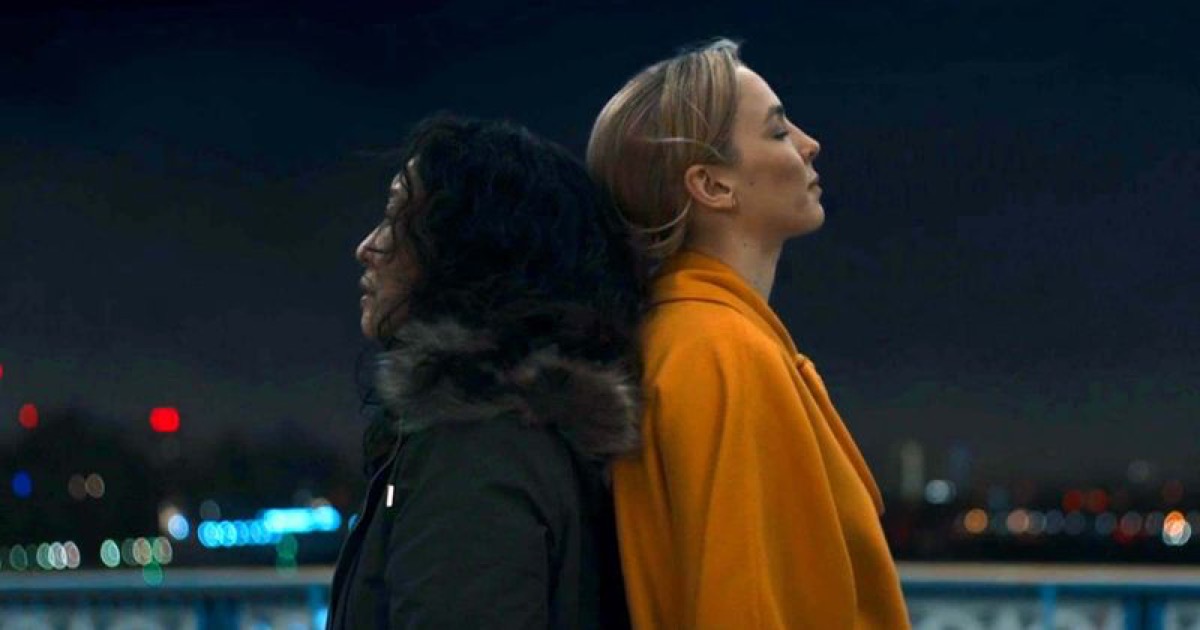‘Killing Eve’ Betrays Its Audience in the End

At some point, you just wish tired tropes would die out.
Spoilers for Killing Eve Series Finale.
Last night, on the Killing Eve finale, Villanelle died. The killing of an iconic anti-heroine sapphic character would have always been a controversial, lazy choice, but the Killing Eve team picked one that was not just all those things, but dull, as well. After seasons of teasing, tip-toeing, and temping audiences, we got to see Eve (Sandra Oh) and Villanelle (Jodie Comer) finally get to act on years of tension. Then, Villanelle dies right after, shot by a series of bullets. She tries to escape with Eve, but ends up dying in the water, with Eve reaching out for her.
A sweet embrace ruined by an awful death serves to cement the truth that Killing Eve was a season one show.
This cliché and draining reappearance of the “Bury Your Gays” trope (a gay character dying right after an intimate moment) comes after years of the show really playing up the will-they-won’t-they sexual chemistry between Eve and Villanelle—years of the show knowing how much their queer audiences really loved that character and the coupling—yet, in interviews, playing around that element of the relationship.
Laura Neal, the head writer for the season for, told ELLE,
The truth is we talked about loads. We were always discussing “What’s the truth of the endpoint of these characters journeys?” If we look at where Eve and Villanelle began and we look at what’s happened to them across the four seasons, what’s the truth of the end point? It would have been easy for it to feel very maudlin, I think, or to go completely the other direction and make it feel too funny. So striking the right balance between the two of them felt really important.
She went on to explain that, for her, this wasn’t a tragic end, but the narratively correct one:
“I think the reason we ended up killing Villanelle was because we wanted to give Eve new life,” Neal explains. “For Eve, the moment where she burst out of the water was always something we had right from the very early iterations of the ending. We were really into Villanelle dying kind of to save Eve. And I think there’s a remnant of that still in the final version. That felt really poignant to us and it spoke to how far Villanelle has come on her journey, that she can do this final act and it’s for someone and it’s kind of a selfless act. So it isn’t so much an ending for her, but a kind of transcendence. In my head, that’s not a death of Villanelle. That’s the elevation of Villanelle to another realm. We talked a lot about like her being too big for this world, like the world not being able to contain Villanelle. We wanted to inject that spirit into that moment, as well.”
Oh, so now the show is concerned about Eve, after a season of not properly using the character (or having a diverse writing staff)? This feels really cheap and lazy. Even if Villanelle died, there were better ways, and especially ways with more autonomy for the character.
Since the controversy with The 100 back when they killed off the character of Lexa right after she got intimate with her love interest, Clark, and ClexaCon began as a result of the fan reaction, I thought maybe—just maybe—writers had gained a better understanding. Yet, Killing Eve has just cliché-queerbaited itself into the history books of a perfectly cast show that had no idea what its audience wanted.
(via Variety, image: BBC)
Have a tip we should know? tips@themarysue.com